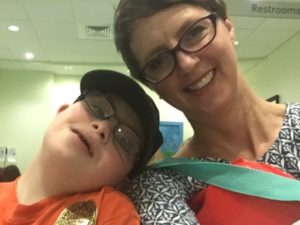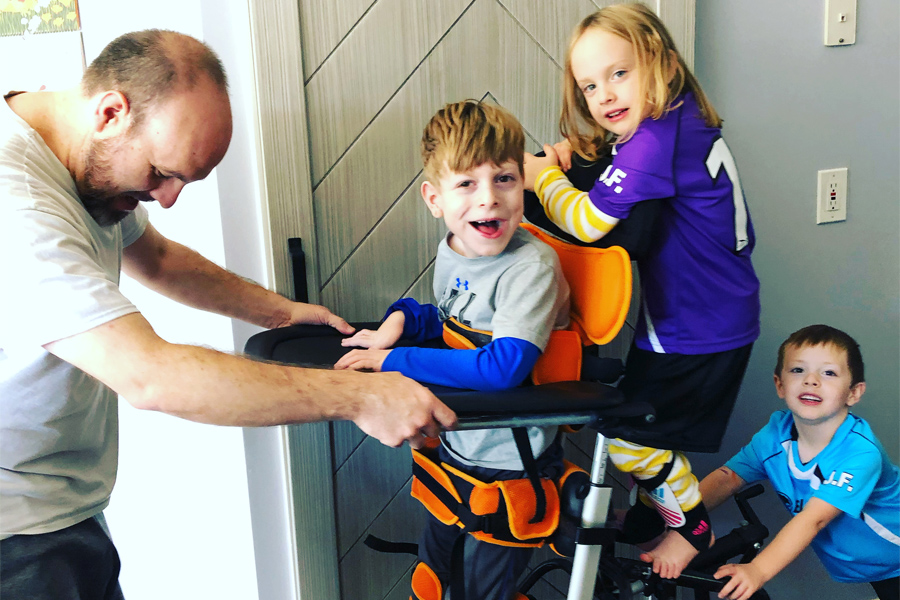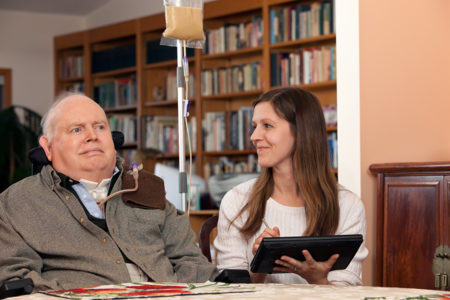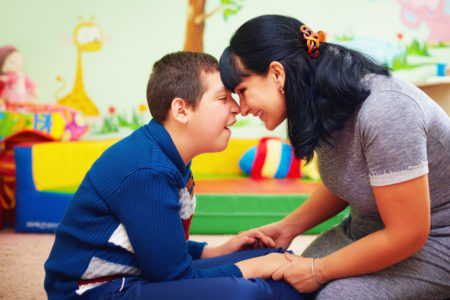I sat in my car sobbing. My son was sick, and the pediatrician declared it, “just a virus” but her opinion did nothing to assure me. In fact, it had exactly the opposite effect. Ben had gone through surgery for Hirschsprung’s Disease, a rare disease affecting the large intestine, just over a month before, but his doctor gave him a quick once-over and sent us on our way.
With his well-being on my shoulders, I had a choice: I could listen to the doctor, which seemed like a hefty risk, or I could trust my gut and find another way. I pulled out my cell phone and called the office of the surgeon who had performed Ben’s operation, and the nurse advised us to head directly to the emergency room. Later that day we found out that Ben had enterocolitis, a serious complication of Hirschsprung’s Disease.
It’s often a fine line to walk, as parent and primary caregiver of a complex child with both intellectual and medical disabilities. Ben cannot clearly communicate what he is feeling, and his symptoms can be puzzling, so it’s up to us as parents to solve the mystery, at least enough to decide whether he needs medical care. In the past, we have agonized over how to manage it, but now we have it down to a plan.
- My husband and I put our heads together. We are very different people, and often we don’t agree at first. We have learned that this is a strength, and we see it as an opportunity to brainstorm about the best course of action.
- We talk to other family members. I have a sister who has a very systematic approach to problem solving, and she’s great at asking questions that help me determine my best course of action when I’m undecided. She is super about making time to help me work through decision-making when my husband isn’t available, or we just cannot reach a decision.
- Call a nurse. Most of the specialists our son sees have knowledgeable nurses in their offices. If necessary, the nurse will consult with the doctor and give us a recommendation. This can give us medical insight on things we might otherwise miss.
- Google. Of course, we all know that Dr. Google can give us serious misinformation, but there are times when my search results have calmed my anxiety and conversely, times when my inclination to get to the doctor was confirmed by an Internet search.
- When in doubt, it’s better to feel foolish about going to a doctor and finding out that the terrible “illness” your complex child has is just a serious case of gas than to brush it off and regret it.
Recently, Ben had another symptom that didn’t sit well with me. This time was much different than those instances many years ago. We have come a long way since that afternoon that I bawled in the parking lot. Rather than getting emotional when the answer didn’t come readily, I trusted my gut and kept on plugging away until I got a clear answer for my complex child. It wasn’t easy, and it took dozens of phone calls and many miles of driving, but thank goodness, no parking lot tears.

Alethea Mshar is a Special Needs Mom and Blogger.
Read her blog, Ben’s Writing, Running Mom
Follow her on Facebook
More Articles on Parenting a Complex Child:
- Job Description: Parent of a Child with Complex Needs
- From a Mom of a Medically Complex Child: Letter to My Child’s Doctors
- Child Care for Children with Complex Needs: No Rest for the Weary
- Best Advice for Parents of a Medically Complex Child May Be None At All
- A Call for Allies for Families with Complex Disabilities




























